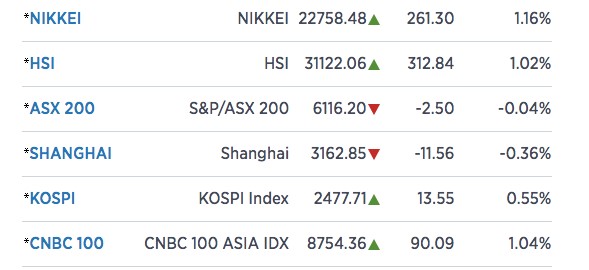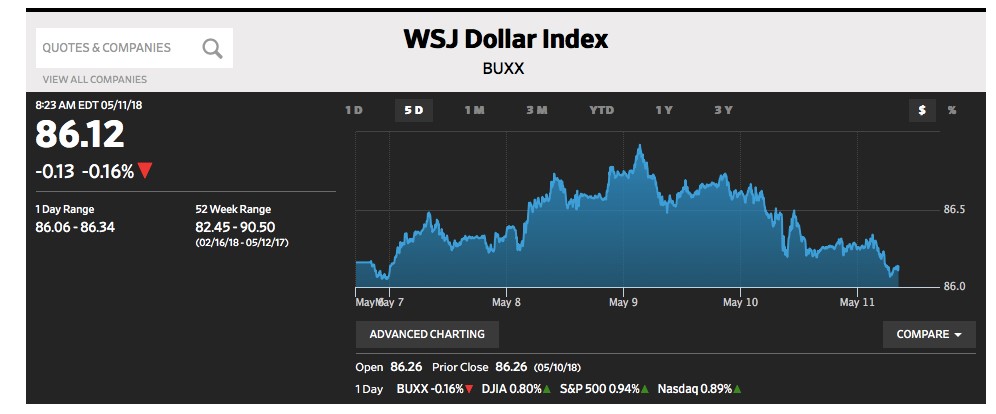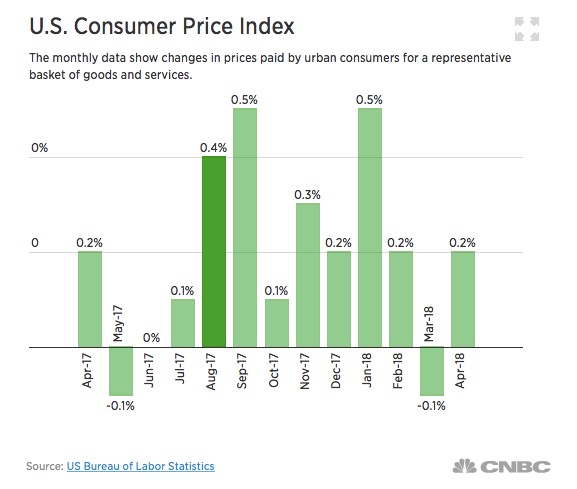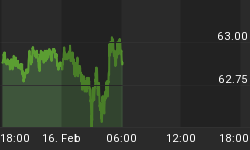While some speculated that Asian markets might respond poorly to Trump’s announcement that the U.S. would withdraw from the Iran nuclear deal and initiate new sanctions, they ended Thursday higher and opening on a strong note Friday, tracking the U.S. stock market and bursting oil prices.
By the time of the U.S. market close Thursday, the Shanghai Composite was up 0.48 percent, right before its open, while the Hong Kong Hang Seng was trading up 0.89 percent and the Japanese Nikkei was up 39 percent.
Asian markets were still trading higher at the open Friday, closing up after tracking overnight gains on Wall Street.

(Click to enlarge)
Shares were higher in most markets except for Singapore.
Shock and awe ruled in Malaysia, where markets remained closed following a surprise loss for the ruling coalition in Wednesday’s elections.
Sentiment now is that it’s not Iran that Asian markets are tracking; rather, it’s oil prices, the U.S. dollar and North Korea.
But more importantly for these markets, a weak inflation reading had investors less concerned that the Fed would increase interest rate hikes this year, leading to the biggest drop in the dollar since March.
Inflation data eased concerns that an improving U.S. economy and accompanying uptick in inflation will force the Federal Reserve to tighten monetary policy.
"The market is breathing a sigh of relief that there was not an upside surprise to the inflation stats," Peter Boockvar, the chief investment officer of Bleakley Financial Group, wrote in an email to clients.' Related: Seoul Leads Luxury Housing Price Index
The WSJ Dollar Index (BUXX) was down another 0.1 percent Friday after having taken some of its biggest losses the day before as April U.S. consumer prices saw a much lower-than-expected increase.

(Click to enlarge)
The Thursday release of the U.S. consumer price index (CPI) for April came in with an increase of 0.2 percent month-on-month and 2.5 percent year-on-year—below expectations of 0.3 percent and 2.5 percent, respectively.
Core CPI, including food and energy, was up 0.1 percent in April from March, and 2.1 percent year-on-year.

(Click to enlarge)
Overall, global stocks saw a three-week high on Thursday helped along by surging oil prices, which are countering the negative effect of geopolitical uncertainty.
West Texas Intermediate (WTI) added 59 cents to $71.73 a barrel on Thursday, reaching higher levels than its seen in over three years. Brent crude gained 58 cents, reaching $77.79 per barrel.
But for Asian markets, the North Korea specter carries more weight on the geopolitical front, and on Thursday, Trump announced that his meeting with Kim Jong UN was set to take place in Singapore on June 12, signaling a possible easing of tensions as far as markets are concerned.
Speaking to Bloomberg, Prudential Financial chief market strategist Quincy Krosby warned that “this tug-of-war remains in the market, regardless of the positive headlines on North Korea, regardless of the positive headlines on earnings”.
“This is a market that has to sort that out, and that 10-year [US Treasury] yield flirting with three percent again is a reflection of that tug-of-war,” he noted.
By Fred Dunkley for Safehaven.com
More Top Reads From Safehaven.com:

















